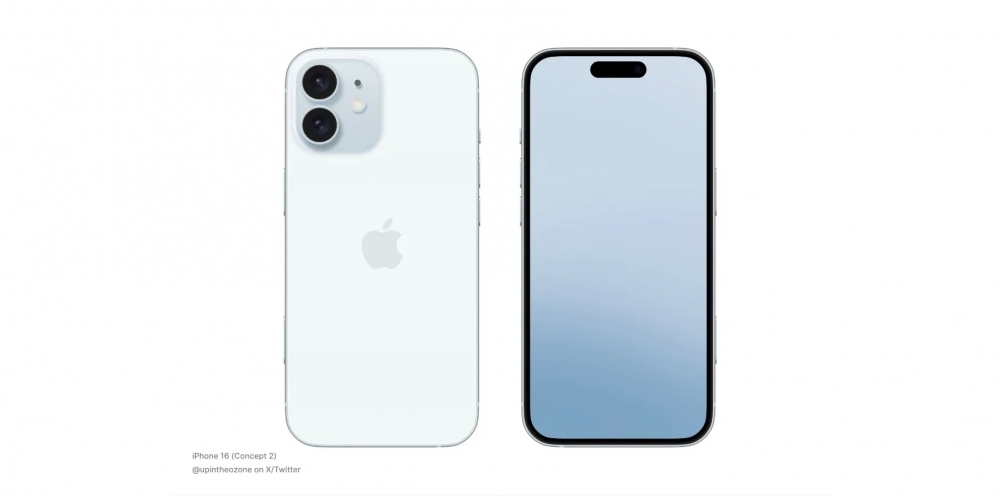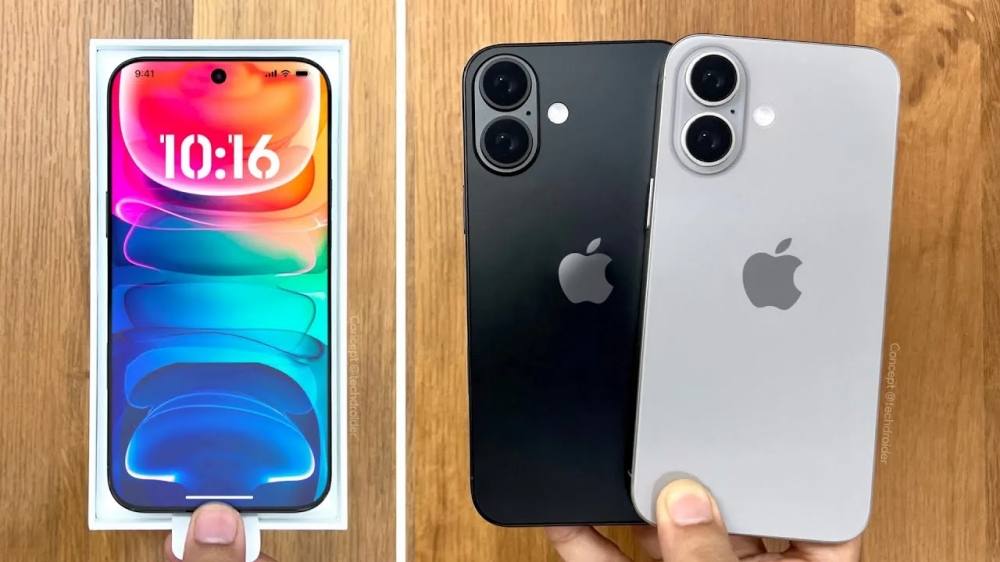iPhone 16 vs. iPhone 15: Is It Worth the Upgrade?
- Stuck between an upgrade and a future release? Here's what Apple fans are buzzing about.
- iPhone 15's camera and design wowed, but whispers of the iPhone 16 are growing louder.
- The iPhone 16 might just be the game-changer—if you can wait for it.
Choosing between the iPhone 15 and the anticipated iPhone 16 is a dilemma for many Apple enthusiasts. As the iPhone 15 brings notable upgrades like enhanced cameras and the introduction of Dynamic Island, the iPhone 16 promises even more with potential design overhauls, a new chipset, and possible battery improvements. With Apple constantly refining its technology, the question becomes whether to embrace the current advancements or hold out for what’s next.
 Photo via BGR // Rumored iPhone 16 concept design
The iPhone 15, released in 2023, marked a significant step forward for Apple’s standard models. Its major selling points include better camera technology and a more interactive design, thanks to Dynamic Island. This model introduced a 48-megapixel main camera sensor, improving detail and image quality, particularly in low-light conditions. For users who prioritize photography, the iPhone 15 offers compelling reasons to upgrade, especially considering its advanced HDR and zoom capabilities. Additionally, its A16 Bionic chip ensures top-tier performance, making it a strong contender for those needing speed and efficiency in their daily tasks.
Photo via BGR // Rumored iPhone 16 concept design
The iPhone 15, released in 2023, marked a significant step forward for Apple’s standard models. Its major selling points include better camera technology and a more interactive design, thanks to Dynamic Island. This model introduced a 48-megapixel main camera sensor, improving detail and image quality, particularly in low-light conditions. For users who prioritize photography, the iPhone 15 offers compelling reasons to upgrade, especially considering its advanced HDR and zoom capabilities. Additionally, its A16 Bionic chip ensures top-tier performance, making it a strong contender for those needing speed and efficiency in their daily tasks.
However, whispers around the iPhone 16 suggest that it might be worth the wait if you’re wanting the absolute best in cutting-edge technology and design. With just a few months until its rumored release, rumors are starting to get more firm — including that the upcoming model may feature a redesigned camera layout reminiscent of the iPhone 12’s vertical arrangement, which could appeal to those nostalgic for older designs. There's also talk of a new "Capture Button," potentially enhancing the iPhone's photography capabilities even further. This button might allow for quicker photo captures or adjustable focus, adding another layer of convenience for photo enthusiasts.
On the performance front, the iPhone 16 could debut with a new A-series chip, likely an iteration of the A17 or a new A18 series. This would not only boost processing power but also improve energy efficiency, possibly extending battery life beyond what the iPhone 15 currently offers. The iPhone 16 might also incorporate Micro-lens technology for its display, promising better brightness and lower power consumption—a subtle yet significant upgrade for users who spend long hours on their devices.
 Photo via Timesbull // The iPhone 16's camera design is getting a significant redesign this year, according to recent rumors. But don't you think it looks a little familiar...?
For those who already own an iPhone 15, the decision to upgrade may come down to specific features like the rumored new camera setup or the potential improvements in processing speed and battery life. If these enhancements don’t seem revolutionary, sticking with the iPhone 15 might make more sense, particularly since it already delivers a robust experience with its current specs. On the other hand, if you’re not in a rush, waiting to see what the iPhone 16 brings could be a wise choice, especially if Apple introduces new materials or design innovations that set it apart from its predecessor.
Photo via Timesbull // The iPhone 16's camera design is getting a significant redesign this year, according to recent rumors. But don't you think it looks a little familiar...?
For those who already own an iPhone 15, the decision to upgrade may come down to specific features like the rumored new camera setup or the potential improvements in processing speed and battery life. If these enhancements don’t seem revolutionary, sticking with the iPhone 15 might make more sense, particularly since it already delivers a robust experience with its current specs. On the other hand, if you’re not in a rush, waiting to see what the iPhone 16 brings could be a wise choice, especially if Apple introduces new materials or design innovations that set it apart from its predecessor.
Recommended by the editors:
Thank you for visiting Apple Scoop! As a dedicated independent news organization, we strive to deliver the latest updates and in-depth journalism on everything Apple. Have insights or thoughts to share? Drop a comment below—our team actively engages with and responds to our community. Return to the home page.Published to Apple Scoop on 18th August, 2024.
No password required
A confirmation request will be delivered to the email address you provide. Once confirmed, your comment will be published. It's as simple as two clicks.
Your email address will not be published publicly. Additionally, we will not send you marketing emails unless you opt-in.